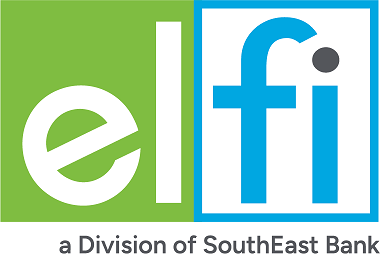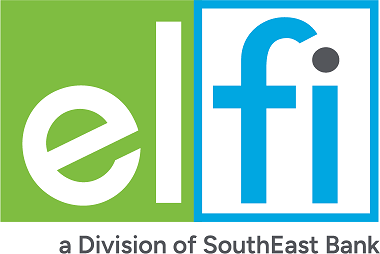Deciding between public and private colleges may appear easy at first glance, but there are several factors to consider before making your choice. While examining degree programs, campus settings, and student life options is crucial, don’t forget to focus on one of the most important considerations—cost.
Deciding to go to college
While you may not have had much choice in what high school you attended, college opens many doors, and you get to choose where you want to go. There are many different options when it comes to choosing the perfect school: major and degree options, geographic location, social life, class size, and the cost of attendance (COA).
Your circumstances may dictate which schools you gravitate toward, or the world may be your oyster. Either way, it would be in your best interest to have a courageous conversation with your family to discuss an affordable budget when it comes to pursuing higher education. Finding the school that seems to be the perfect fit, only to be burdened by loans upon graduation is not how many students want to start life as they adventure out on their own. Taking a realistic look at schools that are financially within your budget gives you a good step towards your overall success as you move past your college years.
Private colleges and universities
Private colleges are generally smaller than their larger public counterparts, though there are exceptions like Harvard University, Cornell University, or Northeastern University. They rely on endowments from donors and alumni, as well as private sources like businesses or corporations, and student tuition. Unlike public institutions, private colleges and universities do not offer in-state tuition discounts, attracting students from all over the country and even internationally.
If you prefer a smaller student population, a private college may suit your interests. While these schools offer the advantage of smaller class sizes and closer relationships with professors and peers, they may have fewer degree options. However, a more compact student body also provides greater opportunities for sports and the arts. The campus community tends to be tight-knit and diverse in terms of geography.
Private universities are frequently known as being liberal arts schools, religious schools, or schools dedicated to specific fields such as nursing or business. If you are dedicated to working within a particular field, ensure your major is available at the private (and all) schools you apply for.
Public colleges
Often public colleges have large campuses and equally large student populations. Public colleges may also give local in-state students an advantage when it comes to admissions. Many public colleges offer in-state tuition for established state residents.
If you are paying an out of state tuition rate, you may also want to look into becoming a resident (and establishing residency) in the state where you are attending school. Each state and university may have different requirements for students to become a resident, but it usually includes a requirement of living full-time in the state for at least a full year, proving your intent on wanting to live in the particular state (more than just attending school there), and proving your financial independence.
You may also be able to take advantage of regional reciprocity agreements (such as the Western Undergraduate Exchange WUE, the Midwest Student Exchange program, or other regional program).
Check with your state and university to see if becoming a resident or becoming involved in one of the reciprocity agreements may be an option for you to help lower your tuition cost. There may also be grant and scholarships available specifically for out-of-state students. Your financial aid office may have more information available.
Comparing the costs between public and private schools
Often the largest difference between private and public colleges is the cost of attendance. Public schools and universities tend to be less expensive because the government funds they receive help to subsidize costs, including tuition. State schools were created with the intent to educate the residents of that state. (That doesn’t mean that non-local students can’t attend a state-school, but just realize you may have a higher cost of tuition if you’re looking to get away from home.) They could offer in-state student financial aid options for in-state students or students who attended high school in the state.
Yes, private schools tend to have higher advertised tuition rates, but they can sometimes be just as (if not MORE) affordable due to tailored financial aid packages they have the freedom to create for students. Along with federal financial aid, private colleges generally have more money available to fund grants and scholarships. If a private college or university is on your list, don’t discount it purely on the initial sticker price. Check out the net price calculators hosted on college websites to help you determine how much financial aid you may expect to receive from the institution. You may also want to talk to your financial aid office to learn more about what particular financial aid may be available to you.
Making the decision to go to a public or a private college
Students should realize that the generalities spoken of do not always apply to each and every public and private school. Rather, each school is unique with what it has to offer. Take the attributes that are important to you and work to find them in the schools you are researching. Many times, a direct comparison between public and private schools is just not possible. As you are evaluating the various financial aid offers, you may want to carefully look over the declared cost of attendance and pay attention to what is (and isn’t) included in each school’s declared COA.
More >>> Measuring Academic Fit: Reach, Match and Safety Schools
Public colleges with large student bodies often are better for more independent learners. Professors still have office hours and TAs are available to students, but it’s up to you to seek out the help you need. Public schools tend to have a lower tuition due to the school being given funds by the state.
Private colleges with their typically smaller campus and student population are helpful for those who like to be known to their professors. There are some arguments in favor of private colleges that say even with the higher cost, the quality of education is worth the price because of the smaller class size and intimate nature of the campus.
Ultimately, the choice of where you choose to attend school is up to you. The experiences and network you gain at a college are often unparalleled anywhere else. Your time spent on campus will help you prepare for your future and allow for learning and growth.





















